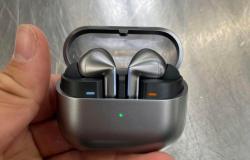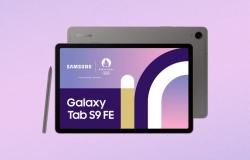((Automated translation by Reuters, please see disclaimer https://bit.ly/rtrsauto))
(Added comparison with Leqembi and comments from experts and analysts in paragraphs 5-16) by Julie Steenhuysen and Mariam Sunny
The Food and Drug Administration (FDA) on Tuesday approved Eli Lilly LLY.N’s treatment for early-stage Alzheimer’s disease, making it the second treatment aimed at slowing the progression of the brain disease to be made available to U.S. patients.
The approval of donanemab, which will be sold under the name Kisunla, follows recommendations from the agency’s outside experts, who unanimously supported its use in patients with early-stage Alzheimer’s disease, saying the drug’s benefits outweighed its risks.
“This is real progress,” said Joanne Pike of the Alzheimer’s Association. “Having multiple treatment options is the kind of progress we’ve all been waiting for, those of us who have been touched, and even blindsided, by this difficult and devastating disease.”
Like Eisai’s competing drug 4523.T and Biogen
BIIB.O, Leqembi, which was approved a year ago, donanemab is designed to clear the brain of a protein linked to Alzheimer’s disease called beta-amyloid.
One of the key differentiators of donanemab is its limited dosage, which allows patients to stop treatment once brain scans no longer reveal amyloid plaques.
Lilly has priced its drug at $695.65 per vial, or about $32,000 for a 12-month course of 13 infusions. That’s slightly higher than Eisai’s Leqembi, which costs $26,500 a year.
BMO analyst Evan Seigerman said the price reflects the fact that patients can stop treatment, unlike chronic treatment with Leqembi.
“The details of how this will play out in clinical practice are not yet clear, but I think it will save a lot of money and patients will appreciate it a lot more,” said Dr. Erik Musiek, a neurologist at Washington University and Barnes-Jewish Hospital.
“I think that, coupled with the monthly dosing, will make it an attractive option,” he added.
In Lilly’s large, late-stage trial, donanemab slowed the progression of memory and thinking problems by 29% compared with a placebo. It also caused brain swelling in nearly a quarter of patients and brain bleeding in nearly a third, but most cases were mild.
As it did with Leqembi, the FDA added its strongest safety warning yet to the donanemab package insert, warning of the risk of potentially dangerous brain swelling and bleeding.
One key difference is that donanemab will require five MRI scans to check for side effects, while Leqembi will require four, which could be an advantage for Eisai’s drug in centers where such scans are rare, RBC Capital analyst Brian Abrahams said in a research note.
Eisai and Biogen have begun submitting data to the FDA to support approval of a monthly maintenance dose to be given as an intravenous infusion, as well as a weekly injectable version of Leqembi that patients could receive at home.
Lilly’s drug is expected to be used primarily by patients enrolled in the U.S. government’s Medicare health plan for people 65 and older. Last year, Medicare began covering Alzheimer’s drugs that received standard FDA approval.
Morningstar analyst Damien Conover expects Lilly’s drug to generate peak annual sales of more than $5 billion, with the market split roughly evenly between donanemab and Biogen’s Leqembi.
More than 6 million Americans have Alzheimer’s disease, according to the Alzheimer’s Association.






